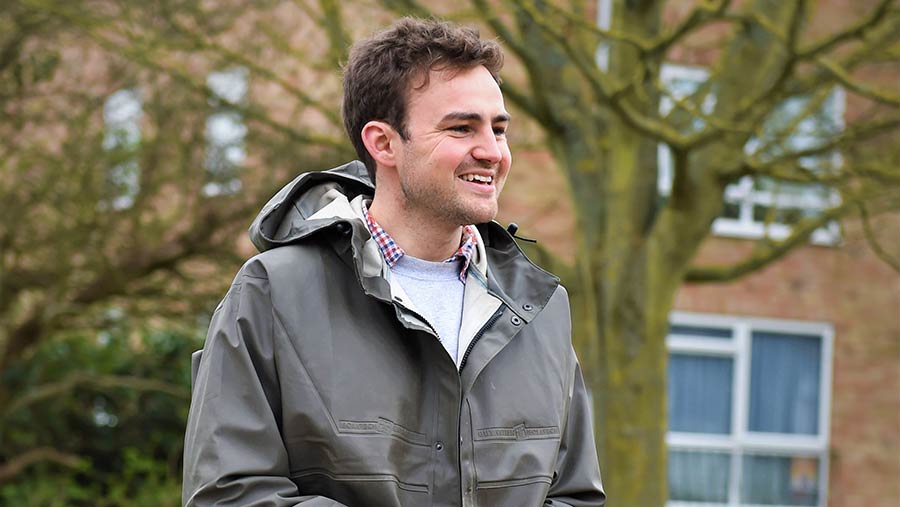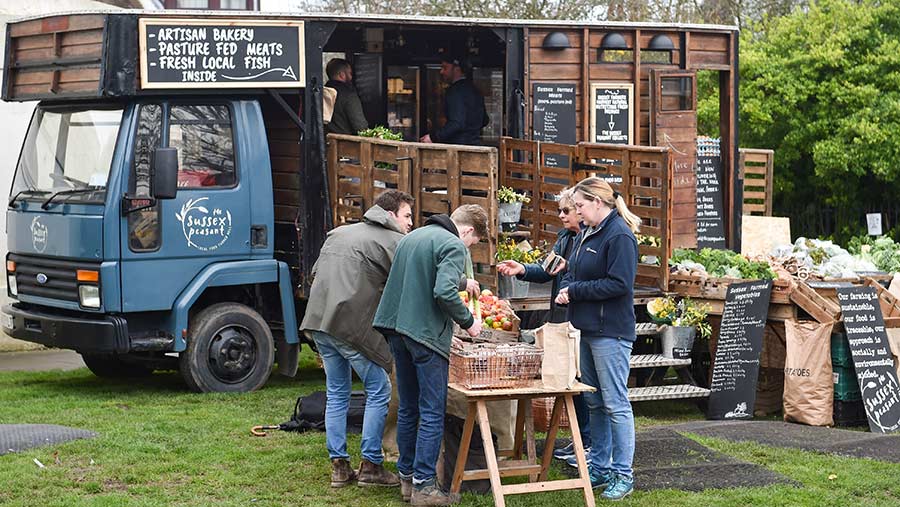Sussex Peasant local farm foods business aims for £1m turnover
 Sussex Peasant founder Ed Johnstone © Simon Dack
Sussex Peasant founder Ed Johnstone © Simon Dack The traditional definition of a peasant is someone who works land they rent and sells the produce to local people – and Ed Johnstone has drawn on this to found his own farm foods business.
“We’re not landowners and we bring produce from local farmers to sell to the community, so technically, we’re peasants,” he says.
Ed is explaining how he came up with the name of his mobile farmshop business, The Sussex Peasant, which sees him collect in-season produce from around the county, then trade from Friday to Monday in various spots from a converted horse box.
See also: Should you diversify? What to consider
“We wanted to create an offering that made it as convenient and accessible as possible for people in cities to get local produce with true transparency and total provenance,” says the 31-year-old.
“I couldn’t afford opening a shop, but then I realised that wasn’t the best way to do it anyway. Instead, I’d take the food to the customer.”
Having acquired an old wood-panelled 7.5t horse box, he spent a summer converting it and took to the road two years ago, offering a range which now includes meat, dairy, fruit, veg and flowers.
“It’s all seasonal produce and we’re very strict about only working direct with farmers – we don’t work with any wholesalers,” says Ed.
“At the moment, we solely sell around Brighton – always at same places at the same times so customers know where we’ll be when – but we’re planning to add more venues.
“We work closely with councils, but also look for spaces that are either privately owned or owned by the community themselves.”
Expansion
Ed and his team of six now have a second converted horse box in operation, while the handful of farmers they originally dealt with has expanded to about 20, and he’s set his sights on achieving a £1m/year turnover.
They’re looking to add a third wagon and expand geographically, both within Sussex and beyond – very much maintaining the focus on local and in-season products.

© Simon Dack
“More and more farmers want to work with us, but it’s important that there is a ‘fit’. We have to represent what they’re doing and vice versa.”
Although he didn’t grow up on a farm, Ed had farming relatives and had always wanted to set up his own business in agriculture or food.
“After university, I went to work in London for three years as a headhunter, but I always wanted to create something of my own,” he says.
A year in Argentina helped his ideas coalesce. “I was struck by the close relationship people there have with the food they eat and how they know so much more about where and how it was farmed.
“Farmers are excellent at farming, but we’re good at promoting, celebrating and selling their produce – so we take that element off their hands. We do what we’re best at, so they can do what they’re best at.
“I’m not a natural salesman, but I’m passionate about what I do. With any new business, you’ve got to work incredibly hard, have huge desire and be relentless. If you do that, if you can create a sense of fun and stay true to what you set out to do, then you’re on course for success.”
So does he miss being a headhunter in London?
“Very occasionally, I think about the times I could go for a beer at 4.30 in the afternoon on a Friday and pretend I was seeing a client. That certainly doesn’t happen these days.”
Ed’s 3 top tips for success
1. Look for alternative sources of funding
“When we started, we weren’t able to get any money from the banks, but got a loan of over £5,000 from The Prince’s Trust.”
2. Differentiate yourself
“‘Different’ and ‘better’ are two words we use a lot. We try to be those things in everything we do.”
3. Word-of-mouth value
“You don’t necessarily need to spend on marketing or advertising. Spend time creating an offer that you’re proud of and that customers like, and word-of-mouth will do the rest.”
